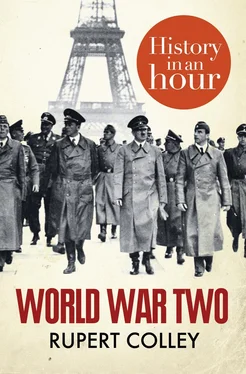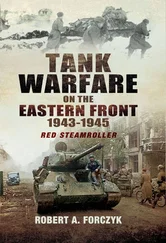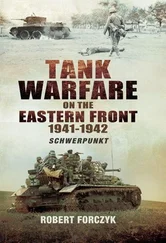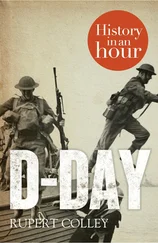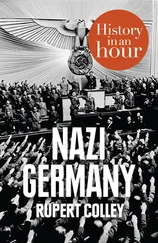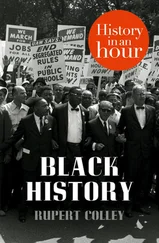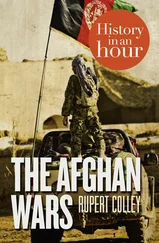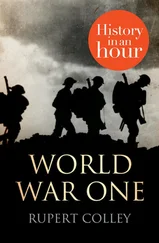From 6 April 1941, the Germans poured into Greece, and by the twenty-third Greece had surrendered, their prime minister having shot himself while the swastika flew over the Acropolis. British forces in Greece withdrew to Crete, which in turn was also crushed by the Nazis, forcing another evacuation for the British. The Greeks were to suffer terribly under the Germans, enduring routine barbarism and murder (only 2 per cent of Greece’s Jewish population survived the war) and large-scale starvation.
Romania’s supply of petrol was vital to the German war machine, and in September 1940, Germany disposed of Romania’s king, and gave its support to a fascist government, who started on an enthusiastic campaign against the Jews. In November 1940, Romania joined the Axis, and in June 1941 they began their campaign against the Soviet Union.
In March 1941, Yugoslavia had signed the Tripartite Pact with Germany, Italy and Japan, but following massive public protest and a coup d’état in which Prince Paul was overthrown, rescinded the following day. Furious, Hitler ordered the destruction of Yugoslavia. Attacking on 6 April, Belgrade was flattened with nearly 4,000 civilians killed by 12 April. It took Axis forces only eleven days to force a surrender. The Germans gave Croatia their independence as a fascist republic and the collaborationist Croatian government hounded their Jews with brutal relish. In the remaining part of Yugoslavia, communist partisans, led by Josip Broz (‘Tito’), and Chetnik rebels fought the Germans and each other with equal intent.
North Africa: ‘A great general’ North Africa: ‘A great general’ Germany’s Invasion of the Soviet Union: ‘The whole rotten structure will come crashing down’ War in the Far East: ‘Your boys are not going to be sent into any foreign wars’ The Battles of Stalingrad and Kursk: The new field marshal The Holocaust: ‘The man with an iron heart’ The Battle of the Atlantic: ‘The U-boat peril’ The Big Three Italy Falls: ‘You are the most hated man in Italy’ The Bomber Offensive: ‘My name is Meyer’ The Normandy Invasion: D-Day France Free: ‘Liberated by her own people’ Approach from the East: ‘For the good have fallen’ The End of the War in Europe: The Death of a Corporal The End of the War in Japan: ‘Complete and utter destruction’ Appendix 1: Key Players Appendix 2: Timeline of World War Two Copyright Got Another Hour? About the Publisher Конец ознакомительного фрагмента. Текст предоставлен ООО «ЛитРес». Прочитайте эту книгу целиком, купив полную легальную версию на ЛитРес. Безопасно оплатить книгу можно банковской картой Visa, MasterCard, Maestro, со счета мобильного телефона, с платежного терминала, в салоне МТС или Связной, через PayPal, WebMoney, Яндекс.Деньги, QIWI Кошелек, бонусными картами или другим удобным Вам способом.
Mussolini’s adventures in North Africa were to prove as fruitless as in the Mediterranean. On 13 September 1940, from their bases in Libya, Italian forces invaded British-controlled Egypt. British and Commonwealth forces, vastly outnumbered, beat the Italians out of Egypt, back into Libya and, along the way, took a number of Libyan coastal towns, including Tobruk, which was to play a strategic and symbolic part in the North African campaign, changing hands several times between the advancing and retreating armies. The British were within striking distance of Libya’s capital, Tripoli, but with the Greeks now facing the Germans, Churchill diverted most of the advancing troops from Libya to help in Greece.
Mussolini had become a burden, and in February 1941, Hitler sent to North Africa his ablest soldier, Erwin Rommel, of whom Churchill said: ‘We have a very daring and skilful opponent against us, and may I say across the havoc of war, a great general.’ Over the next two years the British and Commonwealth armies and the German and Italian forces fought a see-saw war, the Axis pushing the Allies back east into Egypt, then the Allies pushing the Axis back west into Libya. The further one army reached, the further their supply lines were stretched and the easier it became for the other to fight back. One constant thorn in the German side was the Mediterranean island of Malta, from where British forces continuously disrupted the German flow of supplies from Italy to Tripoli. Despite severe bombing, Hitler’s attempts to smash the island failed. Britain’s King George VI awarded the island, as a collective, the George Cross.
In June 1942, the British had entrenched themselves in the small Egyptian town of El Alamein, sixty miles west of Alexandria. Significantly for the Germans, they were 1,400 miles from Tripoli. The first battle of El Alamein, in July 1942, ended in stalemate. The second battle, with the Allies now led by Field Marshal Bernard Montgomery, or ‘Monty’, resulted in a Commonwealth triumph. Rommel, his tanks greatly outnumbered and supplies running thin, was, bit by bit, pushed back, the British retaking Tobruk on 13 November.
British infantry advancing during the battle of El Alamein, October 1942
Five days beforehand, fresh British and American forces had landed to the west in North Africa, in Morocco and Algeria, where they met limited resistance from the Vichy French, who, after only three days, surrendered. Hitler viewed their performance as treacherous and responded by occupying the Vichy-controlled part of France. Montgomery’s men eventually captured Tripoli in January 1943, and two months later had chased the Germans further westwards into Tunisia. On 9 March, Rommel was invalided back home, and soon after the Allies breached the fortified Tunisian–Libyan border, pushing the Germans into Tunis. Despite Hitler pouring more troops in, and their tenacious defence, the Germans finally surrendered on 13 May, 1943. The Allied victory in North Africa prompted Churchill to say: ‘This is not the end, nor is it even the beginning of the end, but it is, perhaps, the end of the beginning.’
Germany’s Invasion of the Soviet Union: ‘The whole rotten structure will come crashing down’ Germany’s Invasion of the Soviet Union: ‘The whole rotten structure will come crashing down’ War in the Far East: ‘Your boys are not going to be sent into any foreign wars’ The Battles of Stalingrad and Kursk: The new field marshal The Holocaust: ‘The man with an iron heart’ The Battle of the Atlantic: ‘The U-boat peril’ The Big Three Italy Falls: ‘You are the most hated man in Italy’ The Bomber Offensive: ‘My name is Meyer’ The Normandy Invasion: D-Day France Free: ‘Liberated by her own people’ Approach from the East: ‘For the good have fallen’ The End of the War in Europe: The Death of a Corporal The End of the War in Japan: ‘Complete and utter destruction’ Appendix 1: Key Players Appendix 2: Timeline of World War Two Copyright Got Another Hour? About the Publisher Конец ознакомительного фрагмента. Текст предоставлен ООО «ЛитРес». Прочитайте эту книгу целиком, купив полную легальную версию на ЛитРес. Безопасно оплатить книгу можно банковской картой Visa, MasterCard, Maestro, со счета мобильного телефона, с платежного терминала, в салоне МТС или Связной, через PayPal, WebMoney, Яндекс.Деньги, QIWI Кошелек, бонусными картами или другим удобным Вам способом.
Читать дальше
